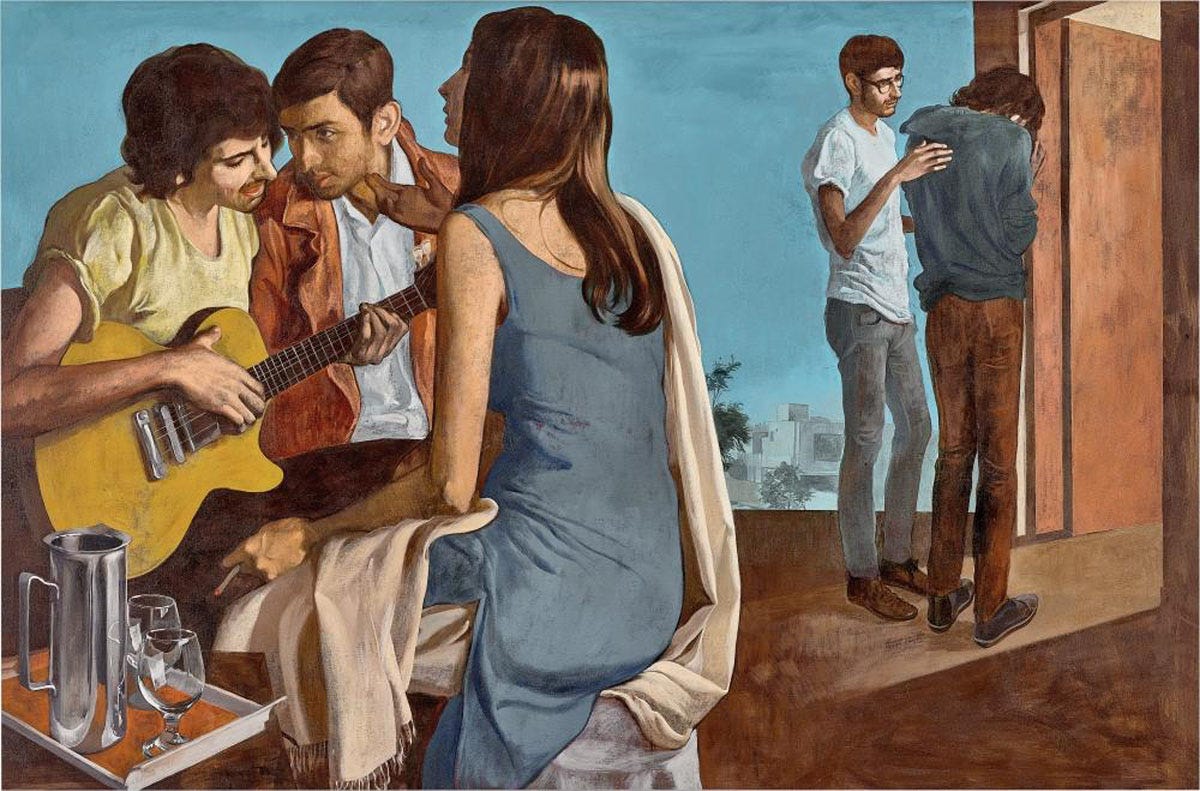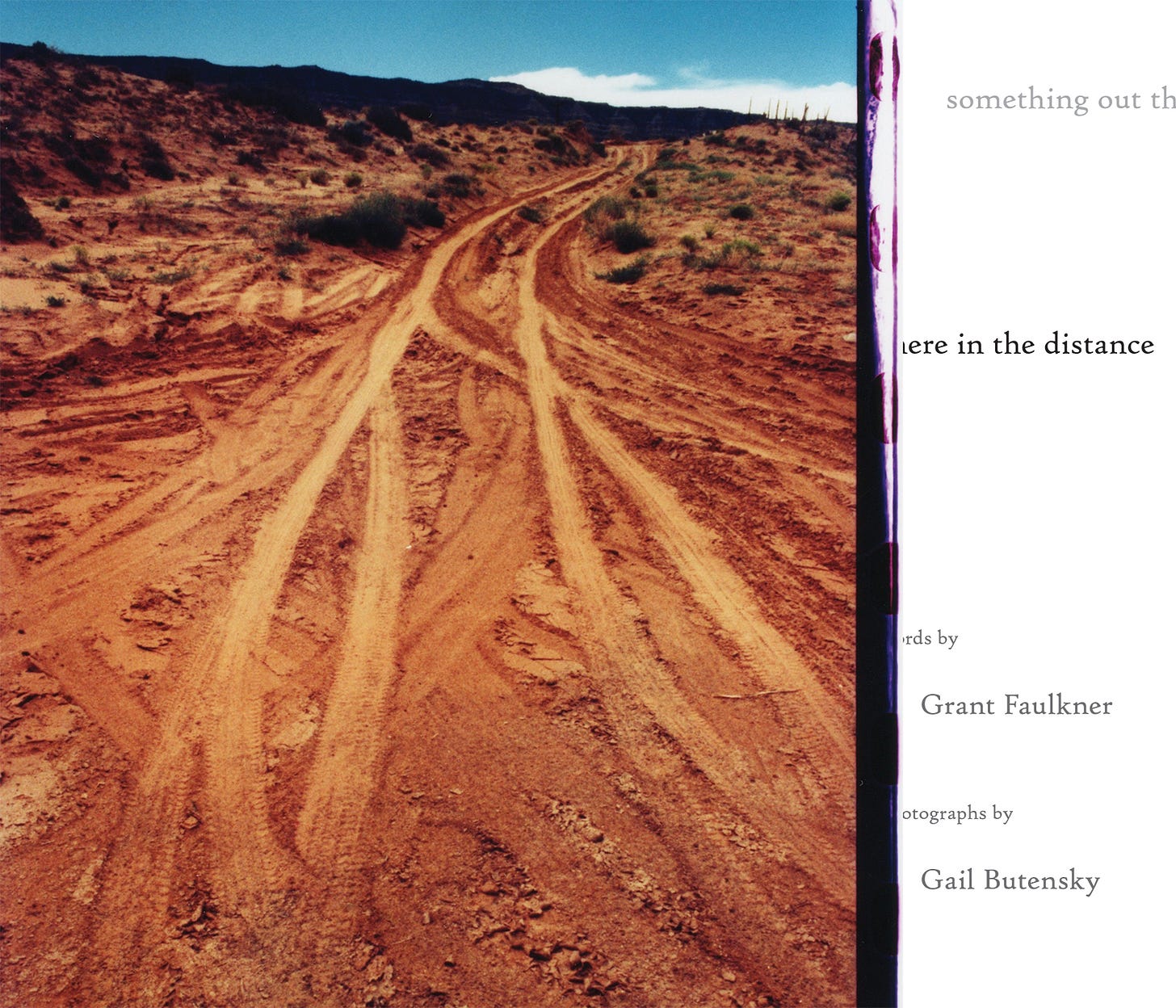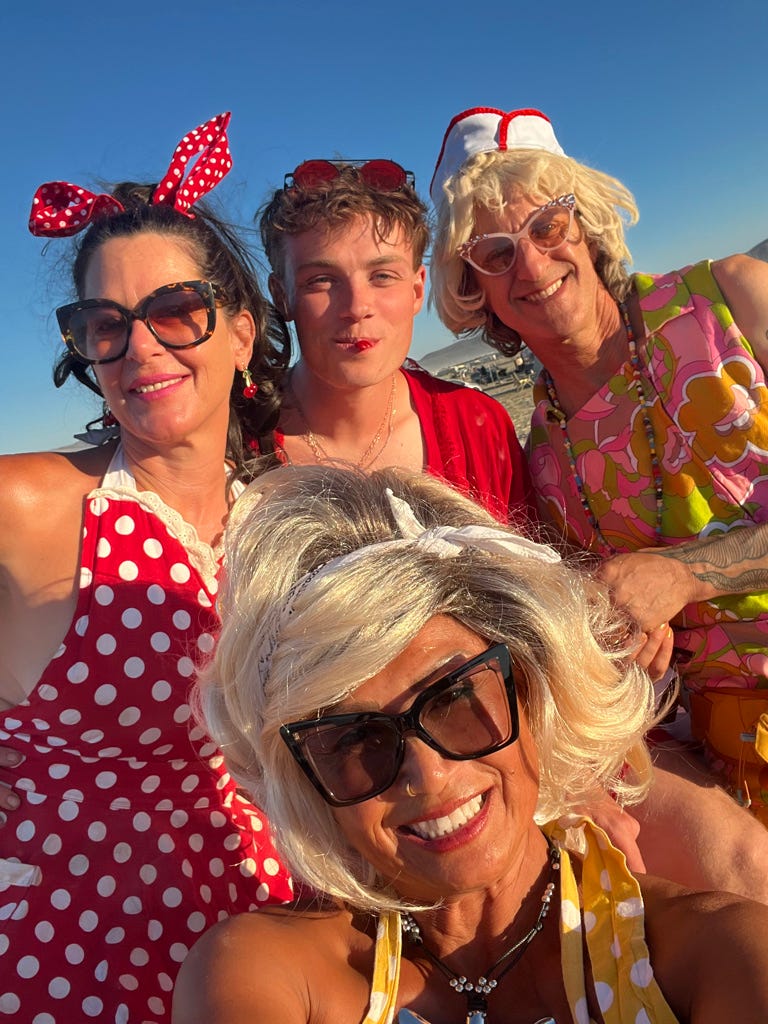Risking sentimentality
“If love did not exist I would be so goddamn sane.”
One paradox of writing: We write to touch and express the deepest of feelings, to open our hearts to our vulnerabilities, our truths, and yet, at the same time … sentimentality is discouraged as a rule.
There's a hierarchy where sentimental content is considered beneath serious literary art—especially as dictated by the MFA or creative writing program model. Amit Majmudar wrote:
“In the world of contemporary fiction, one of the biggest no-no’s is what goes by the name ‘sentimentality.’ It’s hard to perceive it for what it is, when you’re on the inside, but this is actually an arbitrary allergy on our part; it’s analogous to the Victorian one against ‘immorality’ in literature. Sentimentality, as any critic or writer will tell you, is ‘bad.’ You can’t assert on a factual basis that sentimentality is wrong or false, that it somehow misrepresents the human experience—because mushy-gushy moments are an actual part of real lived life.”
Yes, mushy-gushy moments are part of real lived life (thank God), which means they need to find a way into real lived writing.
The irony is that while avoiding sentimentality supposedly produces better art, the prohibition has become so strong that it sometimes excludes authentic emotional experiences that resemble sentimental tropes.
I was raised in a culture where I never heard the words, “I love you.” A masculine culture, to be sure, where sentiment was largely unwelcome and even considered weak. So, in the interminglings of life and art, I eagerly embraced this artistic rule against sentiment.
I’ve never been too comfortable saying, “I love you.” I justified that by saying that actions of love matter more than the words of love because words of love can be used too lightly, too thoughtlessly, without the ballast of any true commitment. But words matter as well. Even using words to risk sentimentality. Because why not?
Now, sentiment is what I want most in my art. I want to feel.
Shelley Winters, a great method actress of yore, said that the actor must be willing to “act with your scars”—to relive painful experiences onstage as the character. Yes.
Emily Dickinson wrote, “If I read a book and it makes my whole body so cold no fire can warm me, I know that is poetry.”
A version of that happens to me when I read Andrea Gibson’s poetry. Their poetry makes me remember the highest highs of love and the lowest lows of love. Gibson risks sentimentality in favor of emotional effusiveness because their truth matters more than an establishment’s critical group think.
I recently read Take Me With You, and was so taken by the way it tread into sentimental terrain with wisdom and surety and risk. The book reads as a single poem divided into three sections: On Love, On the World, and On Becoming. It’s written in one-liners, couplets, greatest hits phrases, and longer-form poems—a unique reading experience.
Here are some excerpts below. The excerpts do no justice, though, to the words read as a whole. But I ask you, are these excerpts too sentimental? Does it matter? Are they enhanced by being sentimental, or reduced?
Feeling too much
“A doctor once told me I feel too much. I said ‘So does God. That’s why you can see the Grand Canyon from the moon.’”
Heartbreak
“Just to be clear, I don’t want to get out without a broken heart. I intend to leave this life so shattered there better be a thousand heavens for all my flying parts.”
Love and madness
“If love did not exist I would be so goddamn sane.”
Love and joy
“She makes me feel like I could win the lottery with a parking ticket.”
Love and commitment
“It takes a hell of a lot more muscle to stay than to go.”
Cruelty
“It’s a myth that kids are cruel, because we don’t grow out of it.”
Promises
“I will never make a pinata of your heart.”
Life as wound
“When asked if I believe in ‘Good People,’ I say I believe in people who are committed to knowing their own wound intimately. People who read their wounds’ diaries, who follow their wounds out windows, down ladders, asking, ‘Where are you going? What do you need? How can I intervene before a cruel thing is done or said?”
Wounding
“We wear our traumas the way the guillotine wears gravity. Our lovers’ necks are so soft.”
Self-hatred
“Beating yourself up is never a fair fight.”
Goosebumps
“Oh, stop hating on love. Why be the vaccine for goosebumps?”
All of this everything inside of us
“This year everyone I know had a broken heart, everyone I know cried in private on their way home from a party, and not everyone I know woke up the next morning, and not everyone I know wanted to even though they did. And this year I stood inside of a redwood tree and thought, “This is the sweetest day of my whole life.” And two months later I was sobbing in a parking lot, thinking, “This is the worst day of my whole life,” and a few months later I was dancing in my living room, saying, “This is the best day of my whole …” Have you ever seen the seed of a redwood tree? So tiny, and all of that everything inside of it. All of this everything inside of us.”
Softness
“I cried in a cloud of tear gas at a peaceful protest. I decided I was too soft to last, and then I decided to be softer.”
Hate
“And all they know of hate is that it couldn’t beat the love out of me.”
What kindness is
“Coming into our own humanity often takes enormous effort, commitment, and bravery. I believe we should be taught that at an early age. I believe part of the violence of our culture stirs from the myth that kindness is natural. I don’t think that kindness is natural. I think kindness would only be natural in a world where no one is hurt, and everyone is hurt. So kindness is work. Kindness is our knees in the garden weeding our bites, our apathies, our cold shoulders, our silences, our cruelties, whatever taught us the word ‘ugly.’”
Stability
“For Halloween I’m going to be ‘emotionally stable.’ No one is going to know it’s me.”
What love is
“Before I die, I want to be somebody’s favorite hiding place, the place they can put everything they know they need to survive, every secret, every solitude, every nervous prayer, and be absolutely certain I will keep it safe.”
In spite of it all …
“I suppose I love this life. In spite of my clenched fist.”
But you have to hear Andrea Gibson read her poems to know her poems
I don’t think I’ve ever heard a better reader. Her poems aren’t really meant for the page. Watch her, watch her, watch her!
For more on emotions, read my post Emotions, emotions, emotions.
Please help me publish this newsletter?
Because a quote on finding intimacy, finding home
“You can’t find intimacy—you can’t find home—when you’re always hiding behind masks. Intimacy requires a certain level of vulnerability. It requires a certain level of you exposing your fragmented, contradictory self to someone else. You running the risk of having your core self rejected and hurt and misunderstood.”
—Junot Díaz
Start your keyboards! I’m hosting a flash fiction contest!
The Flash Fiction Institute and I have teamed up with Freewrite to bring you the Freewrite 500. Here’s how it works:
📖 Join us for a free mini flash fiction lesson by me at 12:30 p.m. EST on Friday, September 19.
⏱️ After the lesson we'll announce the prompt for the competition and jump into a community writing sprint.
📝 You'll have 72 hours to finish and submit your 500-word story based on the prompt.
🔁 Those who can't make it live can watch the replay and submit before the deadline.
🥇 Our judging panel, led by
from the Flash Fiction Institute and writers from the Freewrite team and the Flash Fiction Institute, will judge each piece based on: length (500 words), relevance to the prompt, and creativity. The panel will select one winner.Order My Book!
Why preorders are important to authors
Pre-orders are vital to a book's life in the world because pre-orders determine if bookstores will carry your book, how many books a publisher will print, and whether it’ll be reviewed by publications. And more.
Because a photo
Somebody has a son who went to Burning Man … write a story to this photo prompt:






My friend, Pamela Painter, the great writer and teacher, just sent me these wonderful quotes in response to this piece:
From Richard Hugo’s Triggering Town:
"A creative writing class may be one of the last places you can go where your life still matters."
“If you are not risking sentimentality you are not close to your inner self. “ William Kittredge
Melody Beattie wrote nothing but sentimentality it seems and look how many fans she has and how many books she sold. Literary CFN and fiction can be rather snobbish, I believe, but perhaps it all comes down to taste. In lit mags, I like a bit of heart-felt sentimentality.